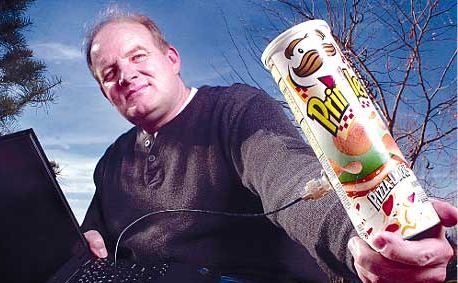
Technometria with Phil Windley
Do you use Twitter? Follow Phil Windley to get information on shows and more in your tweetstream.
In the 17th century, William Ames wrote a book called
Technometria. Technometry meant literally "the measure of a skill or
art." As Ames used it, he meant the study of the theory of the
interrelation of the arts and sciences. (See Why
Technometria for more detail.)
This is the Technometria podcast. I'm Phil Windley and I'm usually joined
by Scott Lemon and Ben Galbraith, good friends and
great technologists in their own right. Matt Asay has been a co-host in the past. We may talk him into coming back someday.
Technometria is our attempt to make sense of the technology that
surrounds us through exploration, analysis, and, hopefully,
reason. In these podcasts you'll find discussions of Web 2.0,
programming and software development, open source, identity, new
media, enterprise computing, and many other topics.
If you enjoy these podcasts, let us know by giving them a rating or sending us a note. You might also
enjoy Phil Windley's
Technometria blog.
Ben Galbraith and Dion Almaer of Mozilla discuss the status of browser development, particularly as it relates to Firefox. They review a number of current open development tools as well as the specifications for HTML 5, particularly as they relate to video. They also talk about Google Chrome, both as a browser and an operating system.
Michael DeHaan discusses Cobbler, a Linux server that can be used to set up networks quickly. He gives the background of the project and reviews how it is installed and used. He talks about developing software in an open source environment. Michael also discusses where he wants to go with the project in future versions.
Dave Winer discusses how Twitter and other social networking tools are changing the way that people read and react to the news. He talks about how the new ways to keep track of events have changed over the years and how these new methods are also likely to change. He also reviews his work in Twitter stats and what we can learn from them as well as where things may go next.
As more individuals have an online presence, developers continue to come up with new ways for people to post items. Sachin Agarwal and Garry Tan discuss Posterous, a rich microblogging platform. They talk about how the service was developed, the architecture of the process, and the security methods in place to protect people. They also review their business model and their product roadmap.
What happens to your online assets when you die? How can you make sure that your family can gain access to your digital identity? Jeremy Toeman, founder and CEO of Legacy Locker, talks about how the company has developed a way to protect your online assets. He discusses the background of the service and the information Legacy Locker is meant to protect, as well as examples of the kind of options users have, as well as the security issues included.
Cloud computing has become the most discussed methods of infrastructure deployment. George Reese, author of Cloud Application Architectures, joins Phil and Scott to discuss the style. In addition to giving an overview, he reviews the specific issues related to it, including storage options, security and privacy, and how to deal with disaster recovery.
Dan Bricklin discusses his new book, Bricklin on Technology, in which he talks about the human aspect of technology: how it is created, how it is used, and how it evolves. He talks about how the book came about and how he decided what content to include. He also reviews the particular issues in trying to adapt a book for the Amazon Kindle.
Three participants in the Utah Open Source Foundation discuss how smaller local computer user groups can build into organizations that reach people in larger areas. They give some background about the foundation and talk about how the Utah Open Source Conference has become a useful way for interested participants to get more involved. They also review some useful methods to start a conference and how best to grow it from year to year.
Cydni Tetro of NextPage discusses the Scrum methodology of software development and how it is used at her company. She talks about the various phases and the responsibilities of each person on the development team. She also talks about the use of Twitter in marketing, as well as the role of women in the technology industry.
Timothy Fitz joins Phil and Scott to discuss the concept of Continuous Deployment in software development. He believes that it is better to send out constant small changes, allowing for problems to appear quicker and be solved easier. He gives real world examples of how the process works and also talks about the concept of Lean Startup and how it relates to Continuous Deployment.

